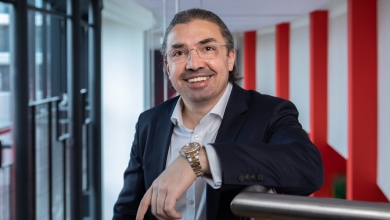
Driverless technology company Aurrigo has become one of the initial companies in the UK to benefit from a new Vodafone and Amazon Web Services (AWS) technology partnership.
The developer has been powering its three Auto shuttles – used in recent trials on roads around the Cambridge area – with AWS Wavelength and distributed edge computing technology provided by Vodafone to deliver ultra-low latency and expansive bandwidth.
“AWS Wavelength, Vodafone 5G and MEC technologies allow us to monitor our autonomous vehicles in real time, via safe and secure communications,” explained Simon Brewerton, chief technology officer at Coventry-based Aurrigo.
“The assured high bandwidth connectivity between multiple vehicles, the central control room and our servers, supports critical uses such as remote supervision and first-person video feeds. This is a paradigm shift in reliability, speed and capacity compared with the previous connectivity we had access to, and we look forward to working with the two global leaders to really maximise the potential of their complementary technology on future trials,” he added.
The trials, conducted in collaboration with Greater Cambridge Partnership (GCP) and Smart Cambridge, are an important milestone for Aurrigo. It is the first time a UK-firm has begun testing a custom-made autonomous vehicle capable of seating up to ten passengers on a road surrounded by other vehicle drivers.
The trials were also the first time Aurrigo engineers had leveraged Vodafone’s distributed edge computing, which the company says provides “significantly better” one-way latency of 25ms to 30ms compared to 70ms to 80ms with the normal cloud.
“Low latency and high bandwidth combine to guarantee an exceptional level of performance from our shuttles and a backend service that is seamless and connected,” Brewerton said.
“The power of Vodafone distributed edge computing and AWS Wavelength has been crucial to the success of the Cambridge trial and has given us confidence that we can move forward with more testing and the important next step of operating without a human supervisor. This really is a giant leap in ‘secure connectivity’ and we are delighted our project was chosen as the first in the UK to benefit,” he added.


